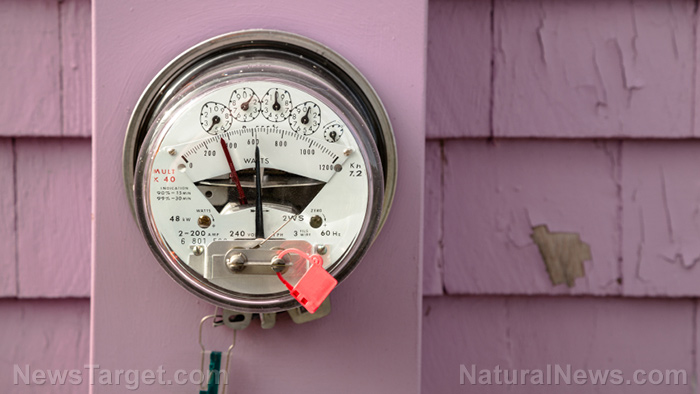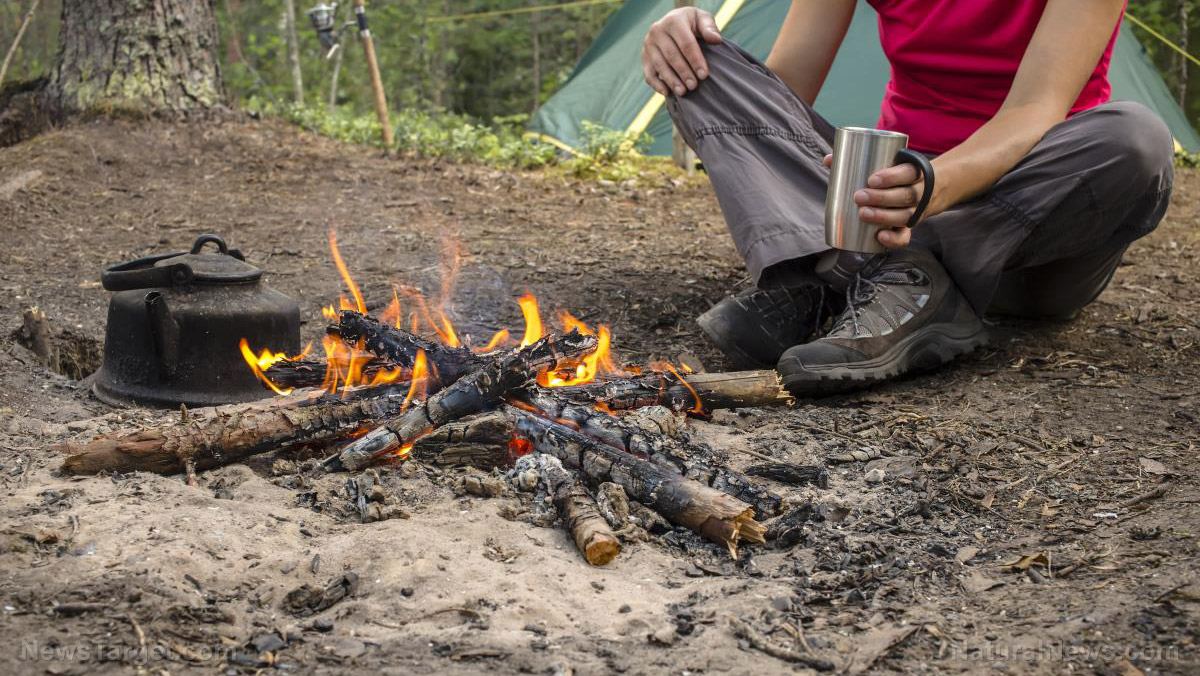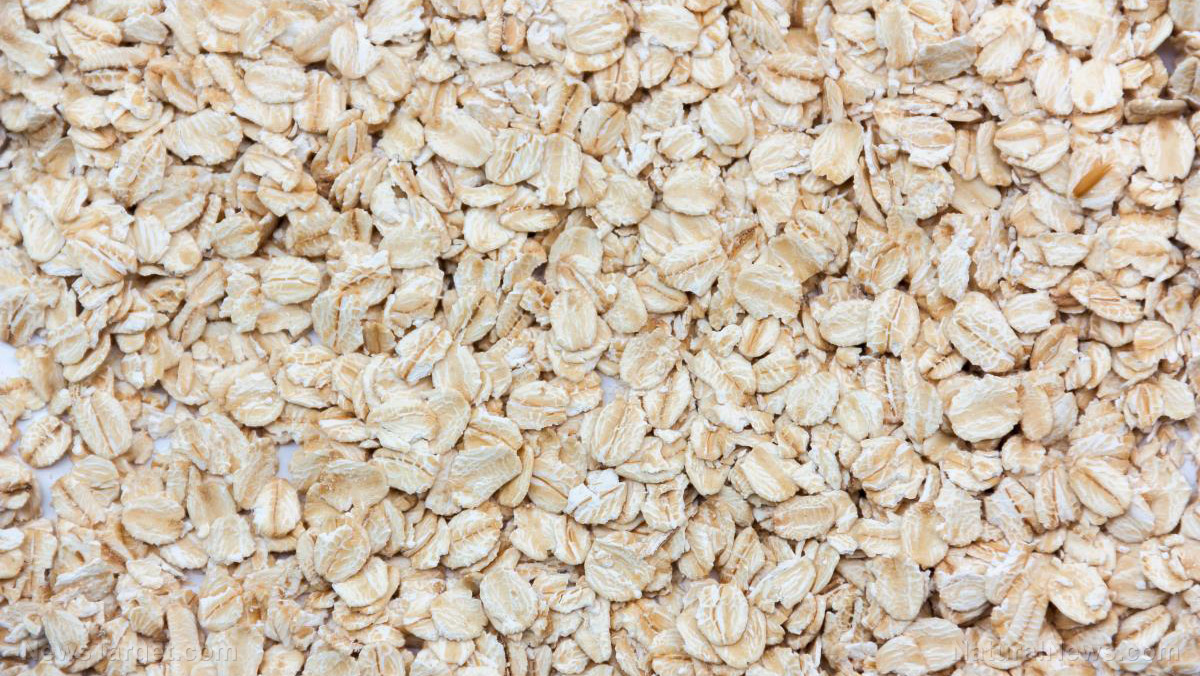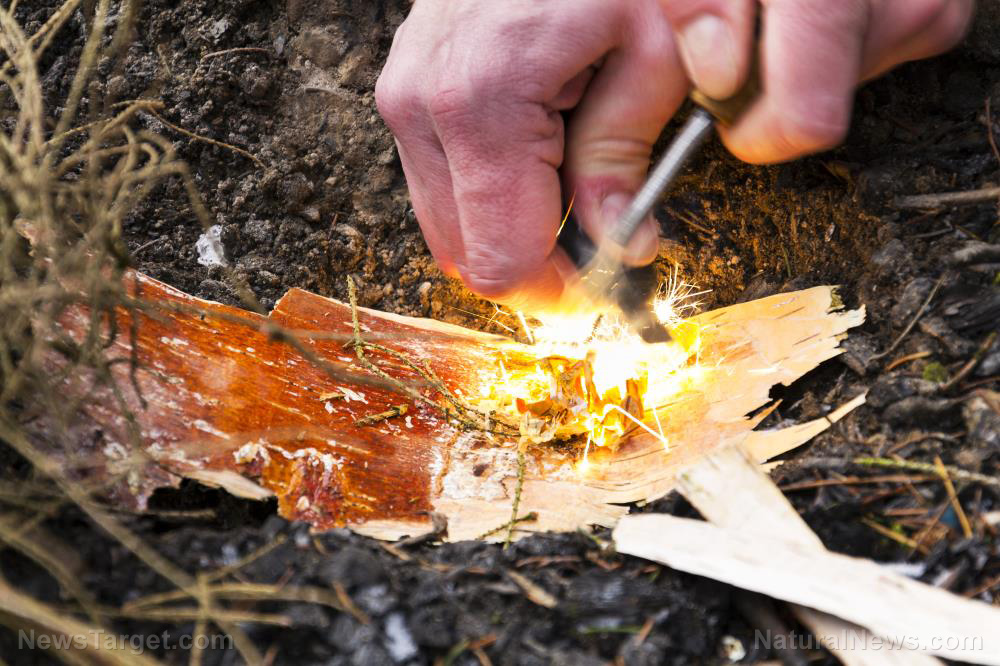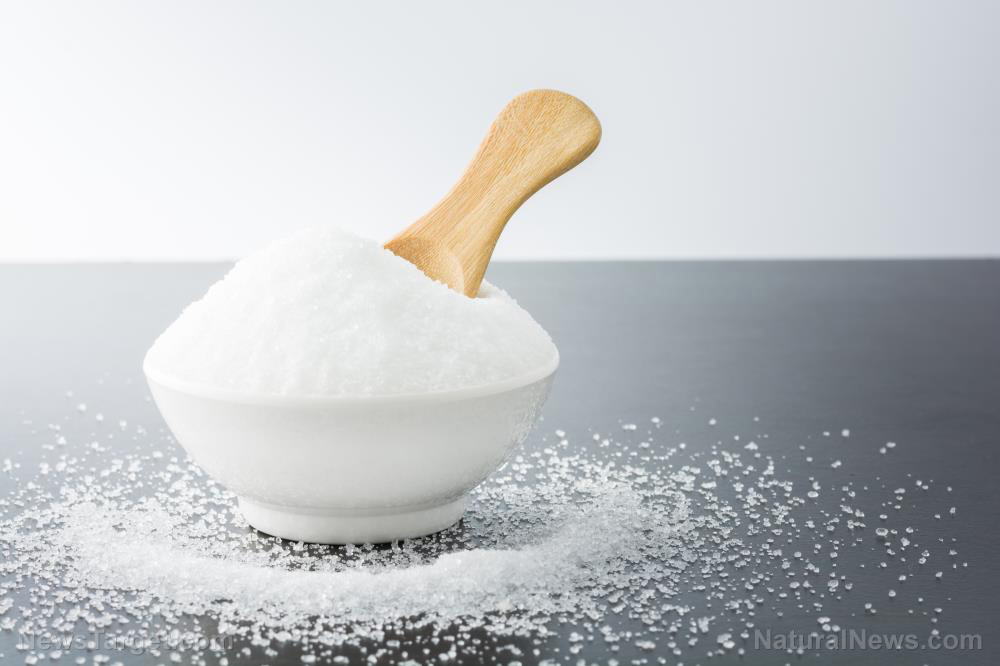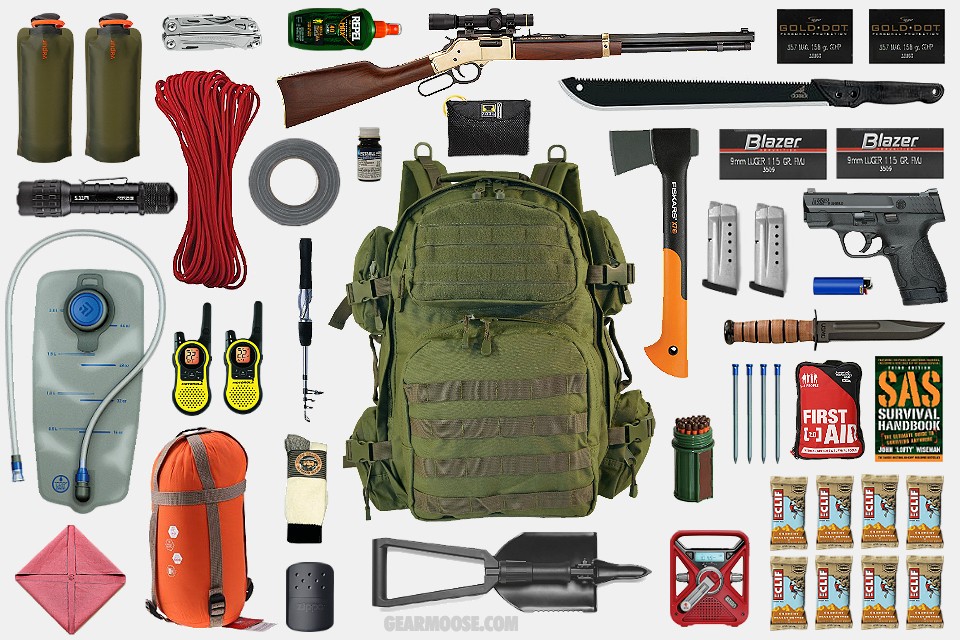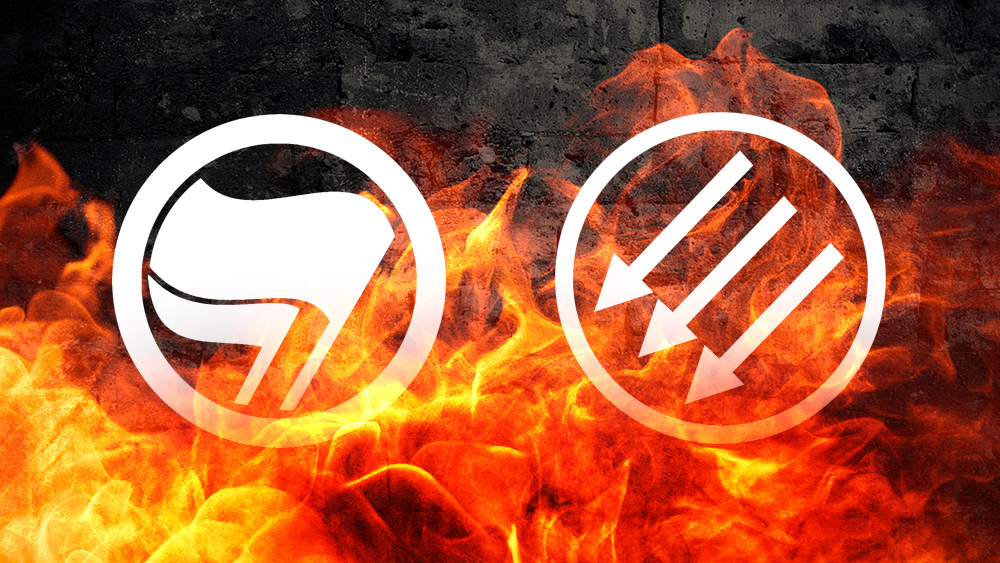Survival basics: What is the shelf life of bottled water?
05/15/2019 / By Zoey Sky
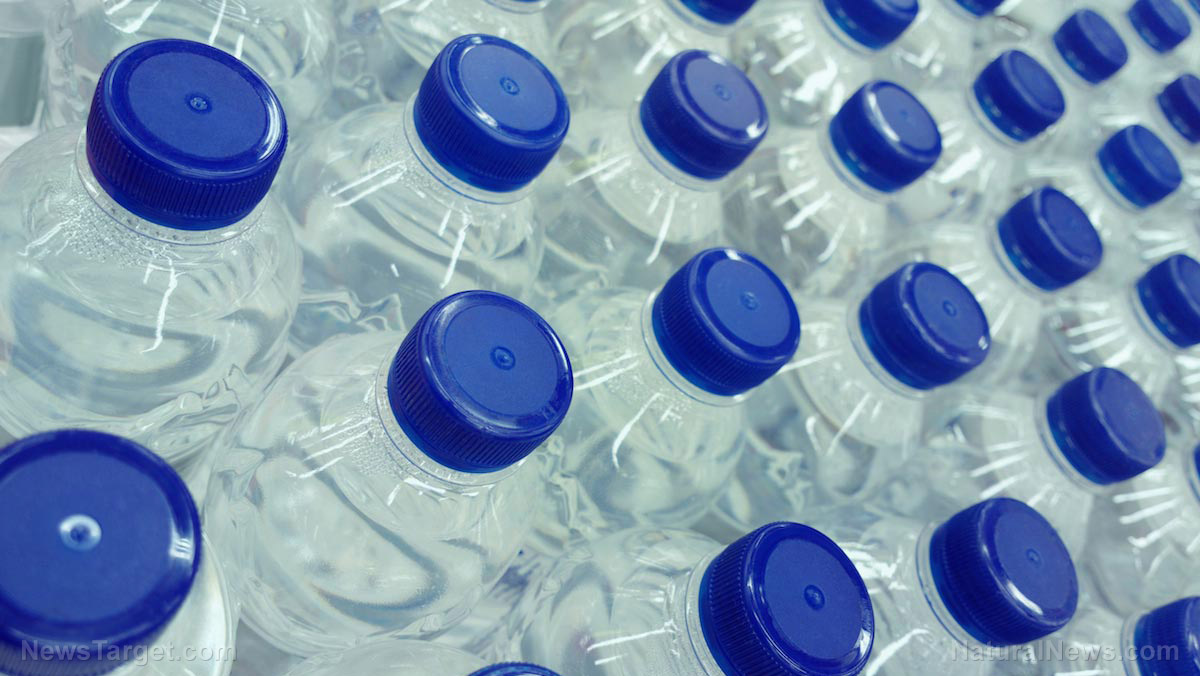
Even when things are quiet, you need to make sure that your survival stockpile has everything you may need if SHTF. Do you have a case (or several cases) of bottled water in your stockpile?
If the answer is “yes,” the next question you need to answer is: “What is the shelf life of bottled water?” (h/t to MDCreekmore.com)
Simply put, bottled water has an indefinite shelf life if stored properly. But you need to remember that plastic bottles can break down or leach chemicals like BPA.
BPA or bisphenol A is a chemical that is added to many commercial products like food containers and hygiene products. First discovered in the 1890s, chemists realized that BPA could be mixed with other compounds to produce strong and resilient plastics.
In modern times, BPA is used to make plastic products like baby bottles, food containers, and other items. The chemical is also used to make epoxy resins that are spread on the inner lining of canned food containers to keep the metal from corroding and breaking.
Tips for storing bottled water
The shelf life of bottled water mostly depends on storage conditions. Knowing these specific conditions will help to significantly extend the shelf life of bottled water.
- Store bottled water in a cool, dark place away from products with strong odors like cleaning supplies.
- Avoid prolonged exposure to sunlight.
- If you need to store bottled water outside, cover it properly to protect it from the elements and extreme temperatures. Water stored outside must be consumed as soon as possible.
- Never store bottled water near a heat source or directly on the floor or on the ground.
- Minimize the possible growth of bacteria and algae by storing bottled water in a dark room.
100% organic essential oil sets now available for your home and personal care, including Rosemary, Oregano, Eucalyptus, Tea Tree, Clary Sage and more, all 100% organic and laboratory tested for safety. A multitude of uses, from stress reduction to topical first aid. See the complete listing here, and help support this news site.
Ideally, you should store bottled water in your basement on wooden pallets. Cover the bottles with a tarp to keep out any light. (Related: The prepper’s secret: Sneaky places to hide your survival water stockpile.)
To ensure that you don’t crush or damage the cases of water on the bottom, stack the bottles no more than six cases high. If you have a lot of cases, build or buy shelving to maximize storage space.
Use a permanent marker to label bottled water with the storage date. Label each case legibly, then rotate your water supply.
BPA and bottle water
You should keep bottled water away from direct sunlight since some water bottles are made from polyethylene terephthalate and can release the chemicals antimony and BPA. Exposing water to heat can increase the BPA levels above what is considered safe for human consumption.
Data suggests that BPA can seep into food or beverages from containers that are made with BPA. This is a serious health concern because BPA is found to affect the brain, behavior, and prostate gland of fetuses, infants, and children. Scientific findings also imply that there is a connection between BPA and increased blood pressure.
According to the Food and Drug Administration (FDA), “BPA is safe at the very low levels that occur in some foods.”
To maintain your overall health even in a post-SHTF world, avoid drinking or eating from plastic as much as possible. Store only a couple of cases of bottled water at a time, then label them properly and use them as soon as possible on a first-in-first-out rotation.
When cooking or preparing food at home, use glass, porcelain, or stainless steel containers for hot foods and liquids instead of plastic containers.
Other information about bottled water safety
Once opened, bottled water will last indefinitely if you keep it clean and stored under the proper conditions as detailed above. But in time, it may lose its peak quality and taste.
You can still drink old bottled water, as long as it doesn’t have a strange appearance, odor, or flavor. When in doubt, purify bottled water before drinking.
Before SHTF, stock up on enough water and follow the safety tips enumerated above.
Sources include:
Tagged Under: Bottled Water, BPA, clean water, Collapse, containers, disaster, drinking water, emergency, Food storage, Gear, homesteading, long term storage, off grid, plastic bottles, potable water, preparedness, prepper, prepping, SHTF, stockpiling, Storage, survival, survival gear, water, water bottles, Water safety, water storage, water supply
RECENT NEWS & ARTICLES
COPYRIGHT © 2017 · SURVIVAL NEWS

